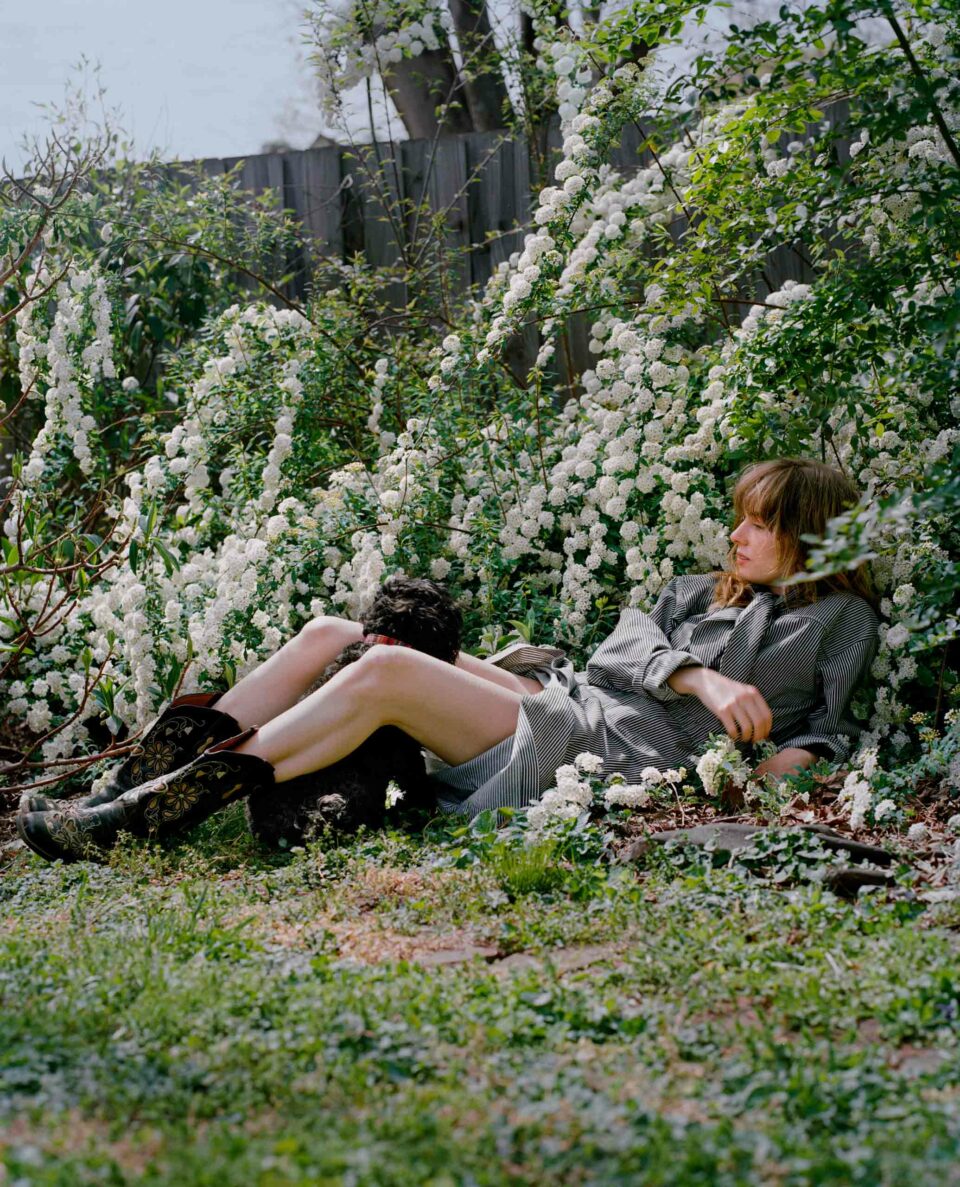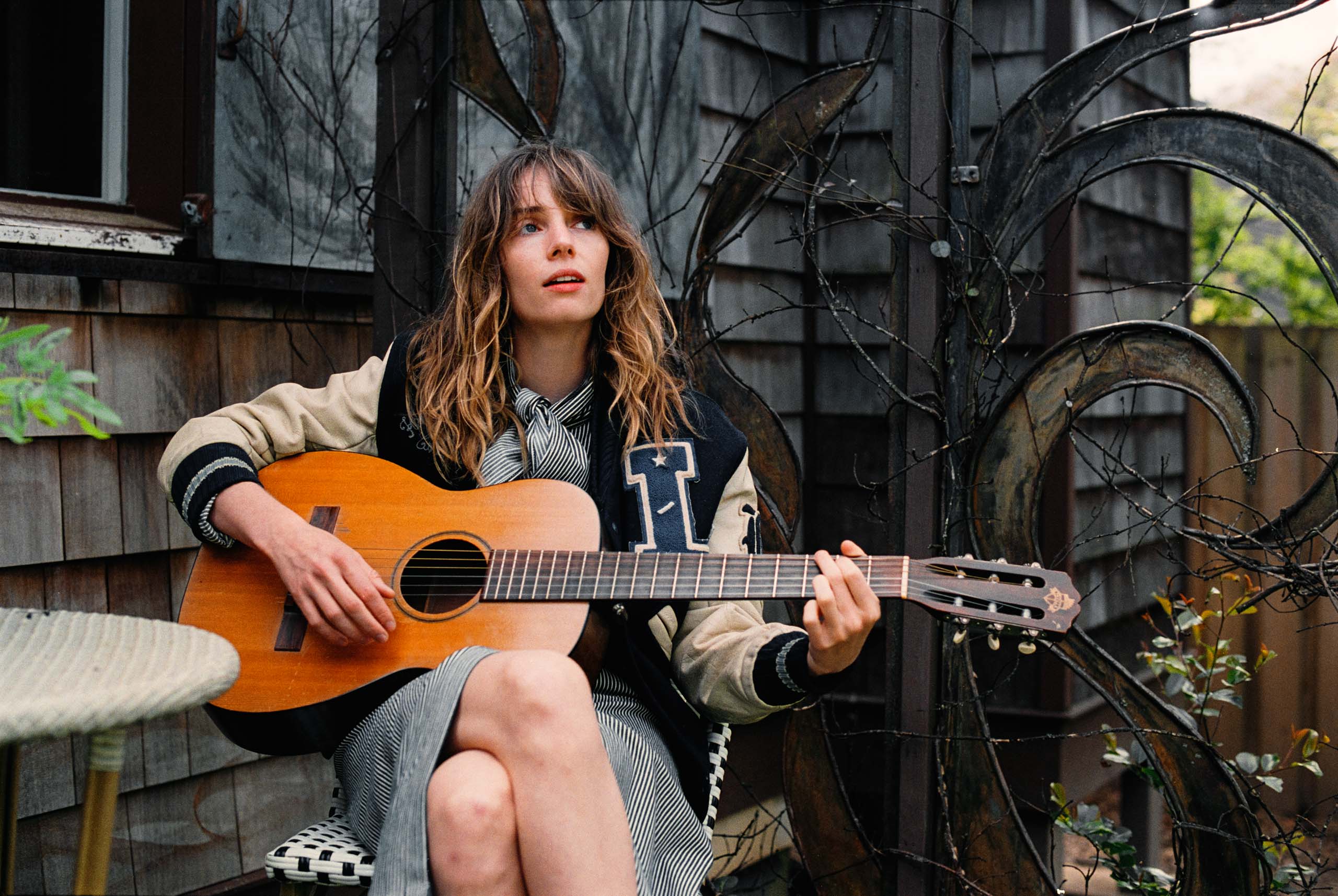“Sometimes I feel like you’re trying to stick pins in your readers,” a literary agent grumbles in the new biopic Wildcat, as fledgling writer Flannery O’Connor—portrayed by an astonishingly transformed Maya Hawke—attempts to sell her confrontational first novel, Wise Blood. “I don’t think you need to make them suffer in order to introduce them to the unusual way your mind works.”
One might imagine a similar conversation taking place between Hawke and some buttoned-up music executive about Chaos Angel. The wise-beyond-her-years musician and Stranger Things actress’s third album of folk pop for indie label Mom + Pop is at turns dark and comic, messy yet beautiful, and unsparingly honest in its explorations of morality, spirituality, and emotional brutality. The record is, in its own way, an instant-classic work of Southern Gothic non-fiction.
“That’s so kind of you to say. That’s so kind of you to say,” Hawke murmurs humbly, speaking via Zoom from her sun-bleached, sepia-toned backyard in Georgia. She expresses similar wonder and gratitude, almost disbelief, upon receiving praise for her Oscar-worthy breakout performance in the fever dream of a film that is Wildcat. “Well, it makes you extremely special that you feel that way,” she chuckles. “It’s a very weird movie, and it’s really only for people who have crazy brains and really artistic minds and weird dreams. So it makes me feel a lot of commonality with you that you like it.”
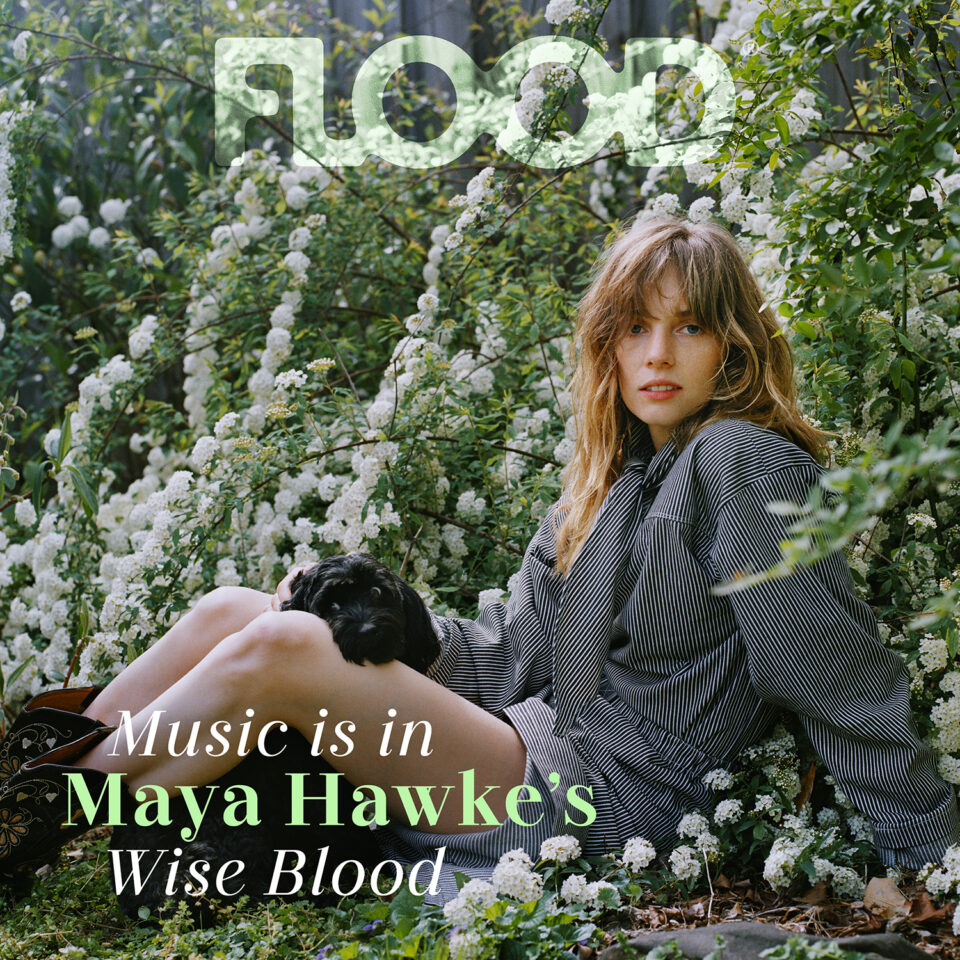
Hawke is as unguarded in conversation as she is in her confessional lyrics, prattling on in manic bursts and stream-of-consciousness spurts—rarely censoring herself, with no killjoy Hollywood publicist butting in to block any questions or steer the conversation back to any pre-approved talking points. She tends to talk in metaphors and similes and grand ideas—similar to how O’Connor, as explained to the doubting publishing executive in the above-mentioned Wildcat scene, just keeps typing until her narratives take shape. Hawke’s guilelessness is refreshing, and frankly delightful, coming from a second-generation screen star—she’s the daughter of acclaimed actors Ethan Hawke, who directed her in Wildcat, and Uma Thurman. But at this point in her career, as she releases her most sophisticated and ambitious record yet at age 25, she’s probably unconcerned about any dreaded #nepobaby stigma or about having to prove herself as a formidable talent in her own right.
“Gosh, I don’t even feel like that’s true!” she interjects incredulously. “I mean, it’s true in a way, and yet it’s not true. [My lineage] is still a conversation that I have all the time. I guess I didn’t worry about it at all when I first started. Or I initially worried way more about the whole actor-to-musician eyebrow-raise. I think it’s actually only been in the last year or so, really, since the internet created a hashtag for it, that the other thing really got involved in my thinking, if I’m being honest. In the last year or so, it’s become much more salacious, and it’s actually created a new kind of perception anxiety in me. I spend an embarrassing amount of my time thinking about that, so I’m still figuring it out, I guess.”
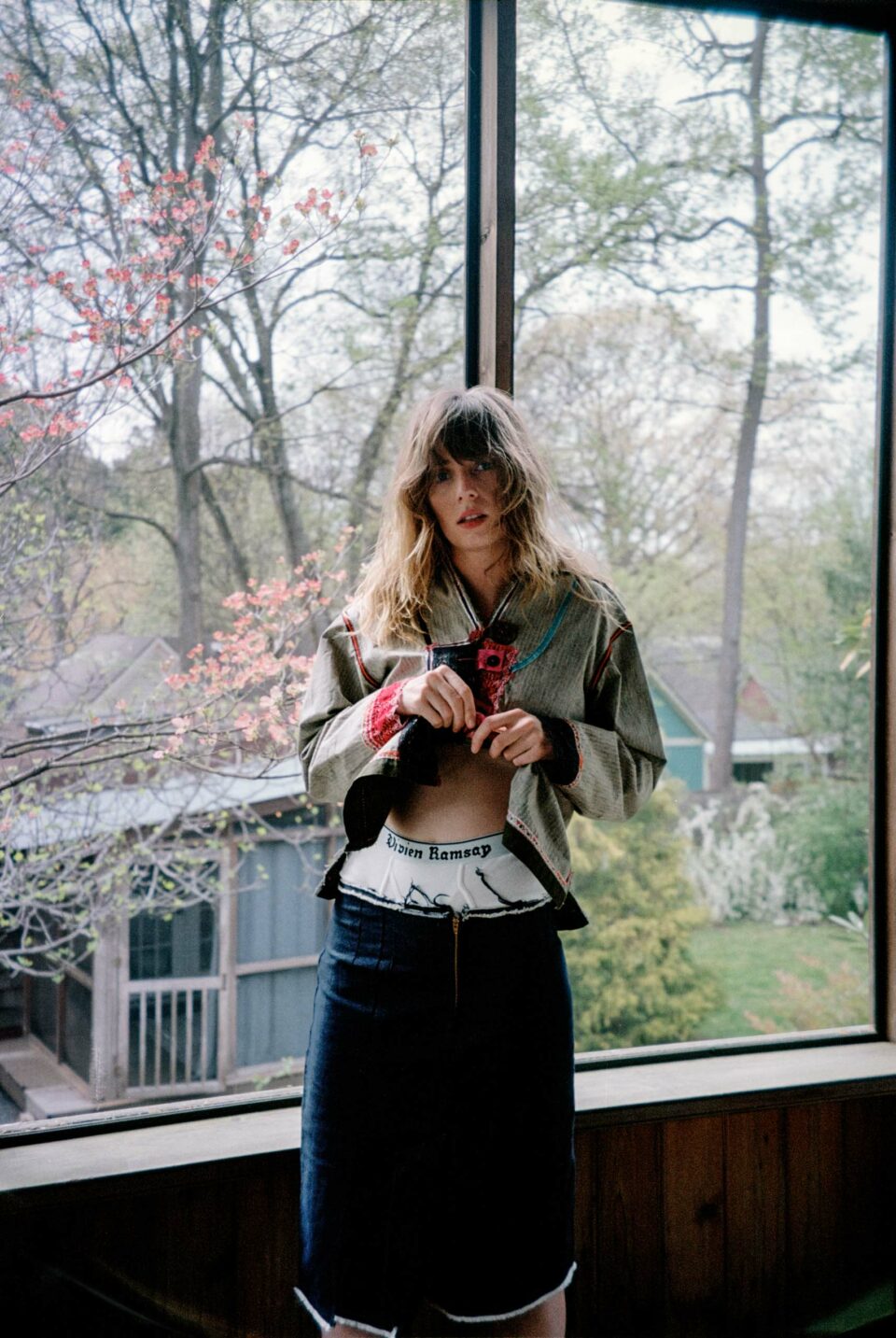
Hawke got a later start in show business than some of her young-Hollywood peers, making her screen debut as Jo March in the BBC’s Little Women at age 19 and landing the role of Robin Buckley in Stranger Things at 21. At 22, she released her critically heralded first album, Blush, because she “wanted to do something that I could control when I was acting. I was auditioning and getting rejected all the time and waiting in New York to work, and I wanted to have some creative outlet that I felt empowered in.” A working actor’s life can be tough even if that actor has a famous last name and supposed industry connections, so Hawke’s concerned parents had initially discouraged her from taking up the family business at all.
“There are ways that I’m grateful, and there are times in which I wish that I’d gotten to start work earlier so I could be further along in my career now,” Hawke admits. “My parents were both child actors, and it was very important to them that I not do that. Being a working child is a difficult way of being a child; it takes pieces from your childhood that could be footloose and fancy-free, and my parents wanted me to be as footloose and fancy-free as I could possibly be, for as long as possible.” Hawke didn’t even go on an audition until her junior year of high school, when she was “secretly trying out for things while I was in drama school—during my lunch breaks, sneaking out to casting offices.”
“[Wildcat is] a very weird movie, and it’s really only for people who have crazy brains and really artistic minds and weird dreams.”
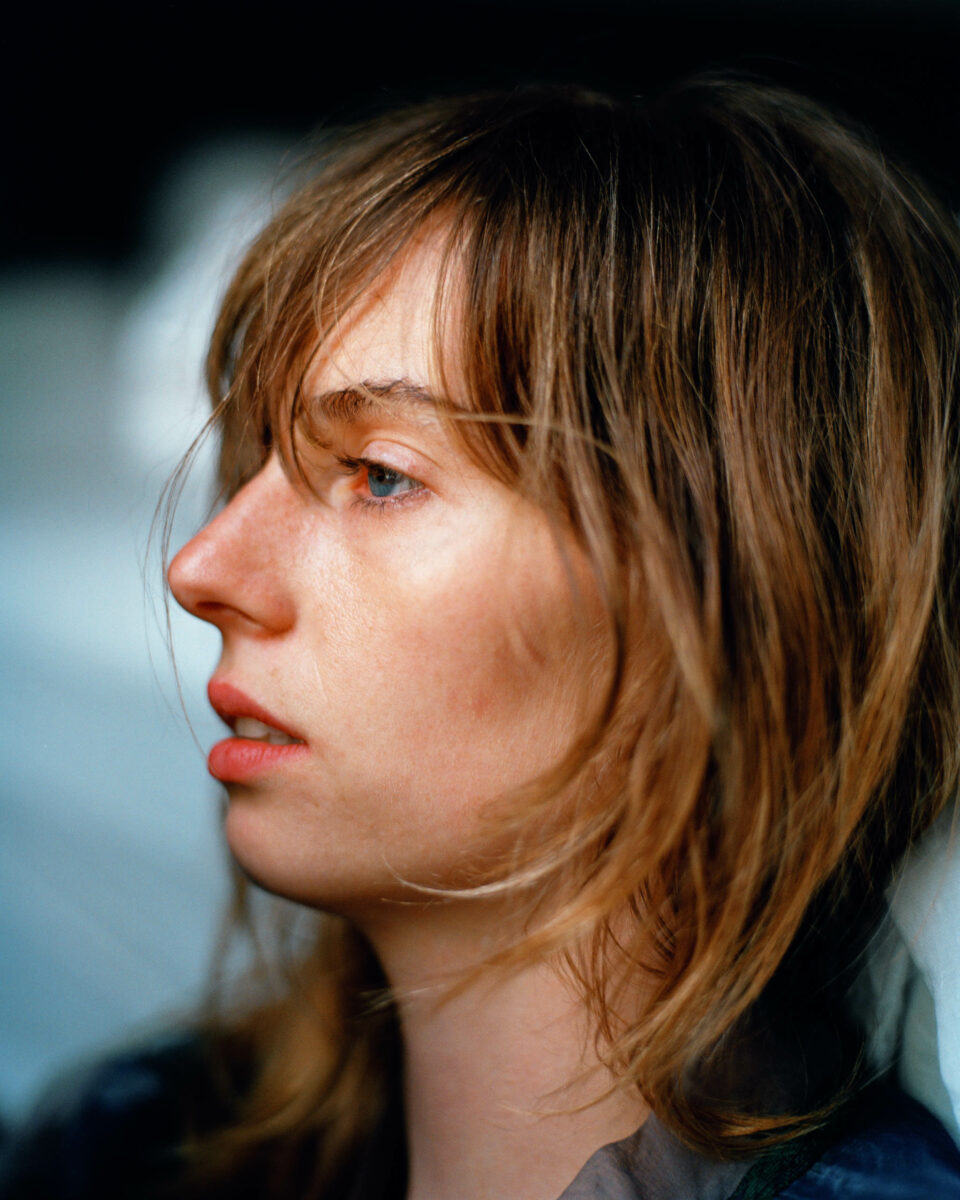
Instead, the young, pre-fame Hawke indulged her writerly side, which would serve her well when she later plunged into the creation of both Chaos Angel and Wildcat. “My first love is storytelling. If you go back to my childhood, I was writing poems with my dad at the typewriter, or telling stories out loud while someone transcribed them,” she recalls fondly. “I have books of poetry that I wrote and collected and illustrated as a kid. I have a little novel that I wrote when I was 10 or 11. I wrote songs. I was in every school play. I loved words and language, and the interdisciplinary aspect of it never mattered to me much as a kid. It matters to me more and more now, because every time you break into a new discipline, it’s newly scary and newly vulnerable, and you have to go in with a beginner’s mind. But as a kid, I just loved storytelling and all the different ways that you could do it.”
It was while attending high school at Saint Ann’s that Hawke became obsessed with the works of Shakespeare, Nabokov, Tolstoy, Ginsberg, and, yes, O’Connor. “It’s a very cool liberal arts school in Brooklyn; if you google it, lots of ridiculous people went there,” she laughs. (A cursory skim of the school’s “Notable Alumni” Wikipedia listing reveals names like the Beastie Boys’ Mike D, Lena Dunham, Jemima and Lola Kirke, and Lucy Wainwright Roche.) Despite her naturally vivid imagination and early exposure to the arts, Hawke had previously floundered academically, but once she enrolled at Saint Ann’s, she flourished and “turned into this dyslexic kid who always had a 400-page book in their backpack.”
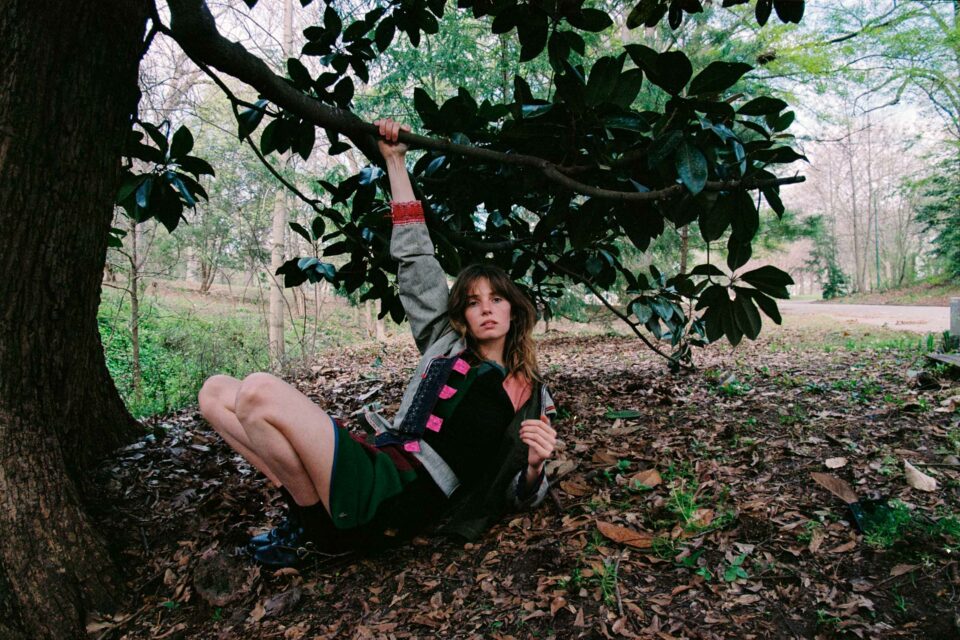
“Being a working child is a difficult way of being a child... My parents wanted me to be as footloose and fancy-free as I could possibly be, for as long as possible.”
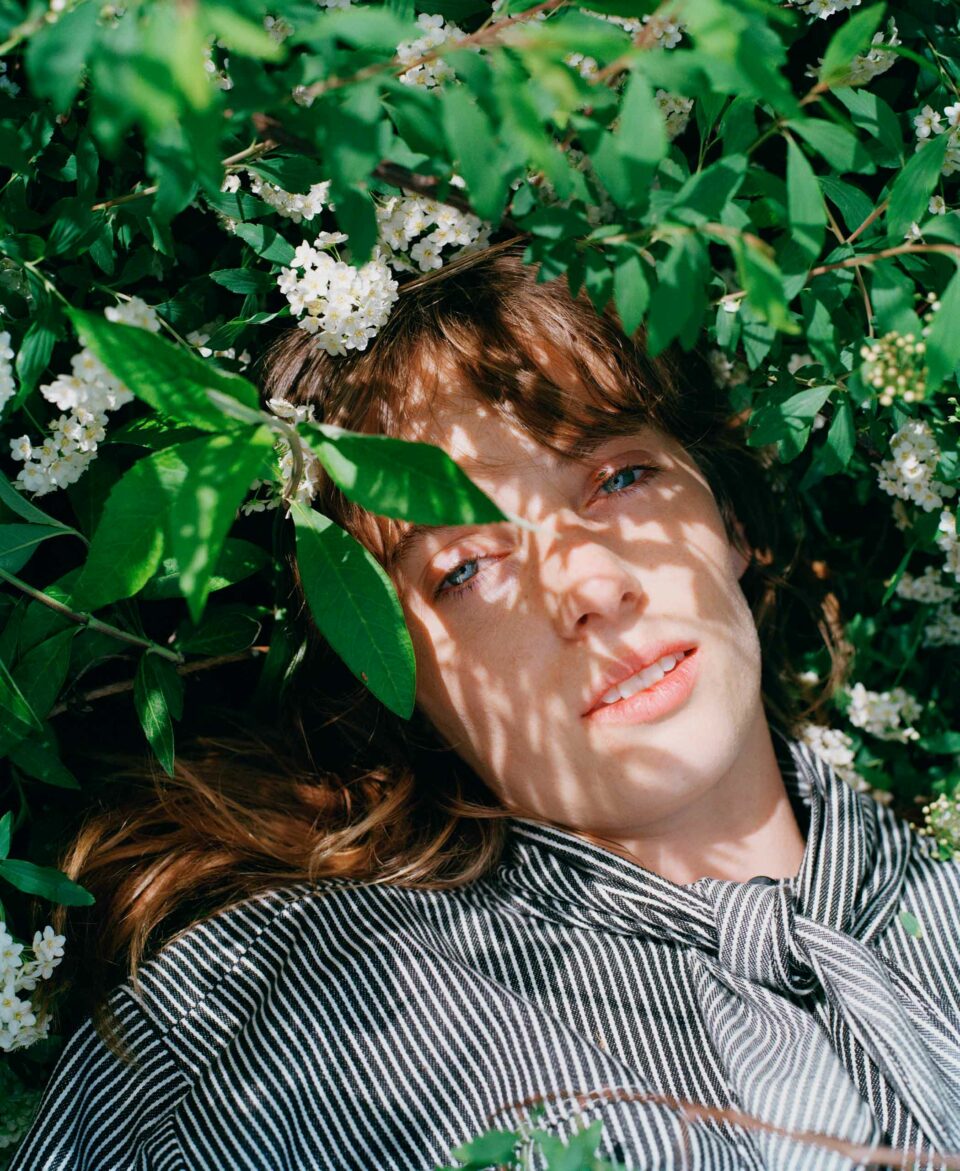
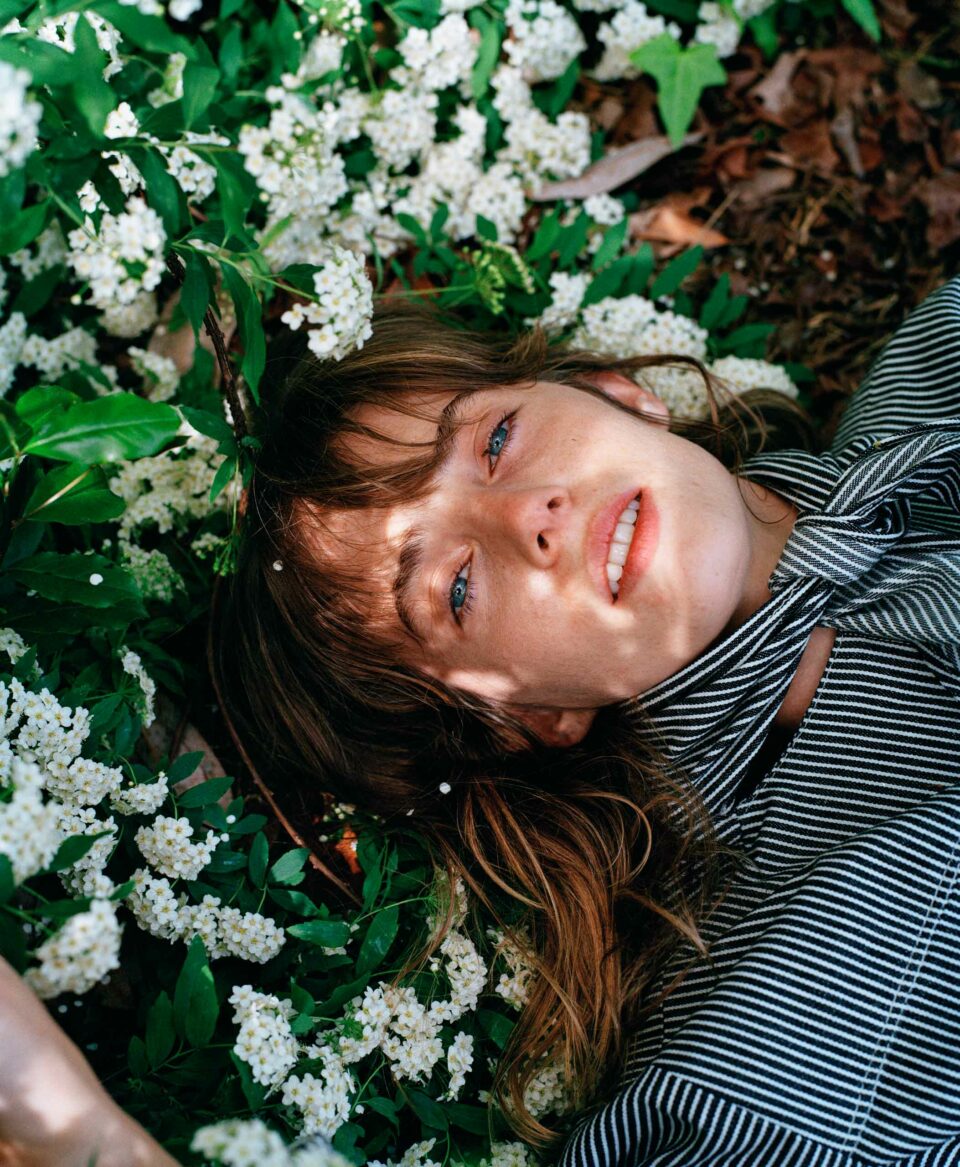
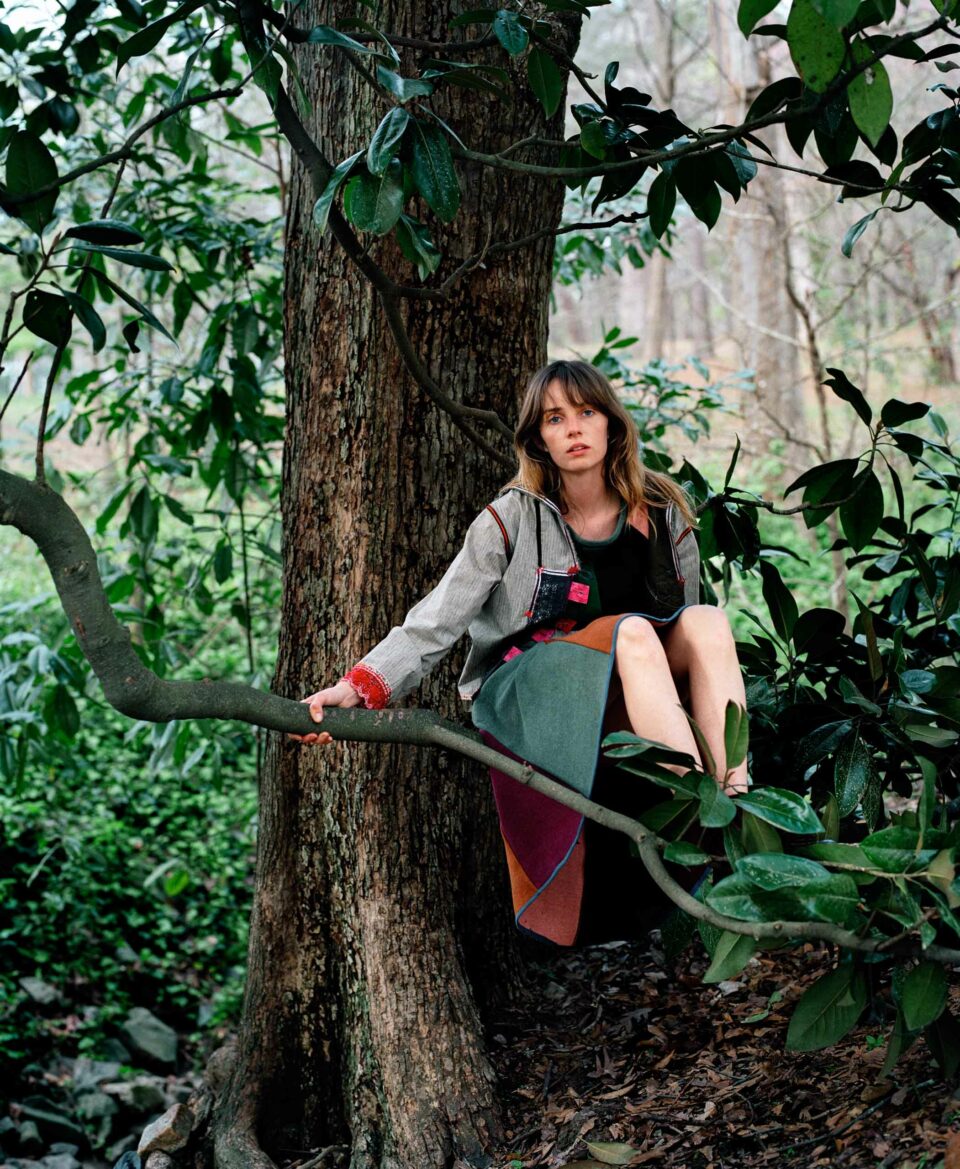
“My style of writing is deeply inspired by my time in high school,” Hawke says. “Before then, I’d been kicked around between schools. I went to, for lack of a better word, a posh uniform school, and then I was asked to leave because of my dyslexia. And then I went to a school for dyslexics, and then I went to a Waldorf school. So I had a real complex about not being able to read and not being a good student. But then I got to this school that didn’t have grades. That was extremely good for me. At my other schools, if you didn’t do a good job on your homework, there was a sense of shame, but because [Saint Ann’s] was all written reviews, we all felt equal walking into the classroom. So I was able to develop a real pride in my intellectual curiosity, in my reading and in my questioning. I almost started to see my aptitude for reading as my revenge against my dyslexia. I started all these book clubs where we read Anna Karenina and Moby-Dick—I tried to start one where we would read Lolita, but I couldn’t get a teacher to agree to do it!”
And that brings us to Chaos Angel, Hawke’s most poetic and personal collection of stories to date. While she had completed the majority of the album—collaborating with Will Graefe and Okkervil River’s Benjamin Lazar Davis and her producer and partner, Christian Lee Hutson—before she began shooting Wildcat, the spare, melancholy title track was written while she was absorbed in the making of that film.
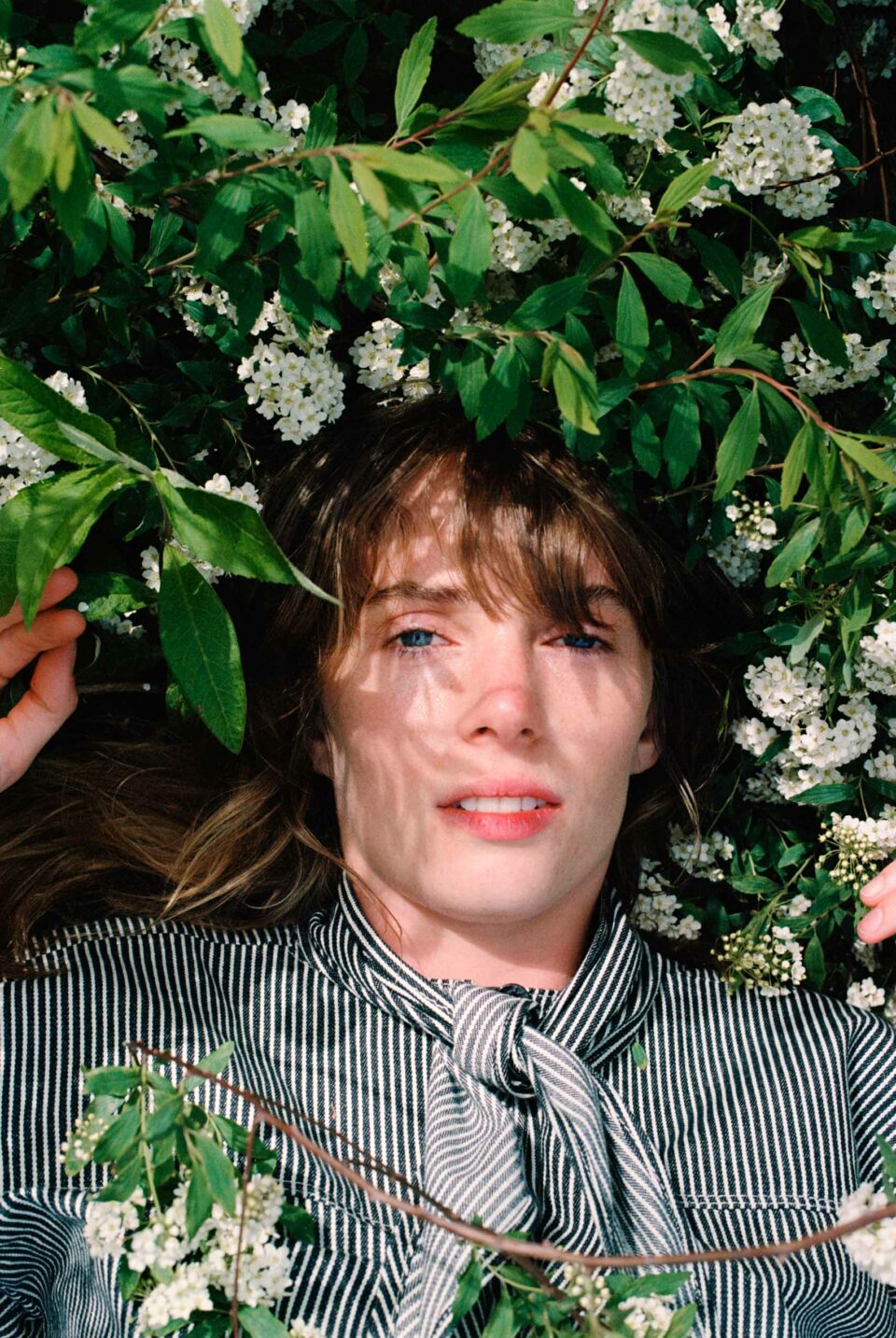
“That’s where this idea of the ‘chaos angel’ came from. My own guardian angel didn’t know herself, and she had to find herself in order to be able to protect me.”
“I think Wildcat shows up in Chaos Angel in some of the Catholic imagery that I use. I’m very moved by that imagery. I wasn’t raised Catholic or in any real denomination, but I was raised extremely curious and sort of under the guise of the idea that ‘no religion is the moon,’ and that there’s something greater,” says Hawke, whose maternal grandfather is Buddhist scholar Robert Thurman. “Flannery has this quote about how she used to wrestle with her guardian angel—if you watch the movie, it’s in the scene in the train station, where she talks about how she even used to sock at her guardian angel. And from what Flannery’s talking about, I realized that the songs I’d written all captured these moments where I didn’t listen to that voice, or wasn’t my best self, and trying to go back to those moments and analyze them.
“And what I started to think about was: What happens if your guardian angel is sick? What happens if your guardian angel is broken?” Hawke continues, her thoughts now tumbling out, much like O’Connor’s words onto a typewritten, ink-smeared page. “I then started to personify my guardian angel as this girl who was as confused as I was. That’s where this idea of the ‘chaos angel’ came from. My own guardian angel didn’t know herself, and she had to find herself in order to be able to protect me. Then I kind of strung it back through the rest of the record. I realized that it was already kind of there, and that this sense of me stumbling around looking for answers was actually my inner voice being a little broken. It was me wanting to heal the inner voice, so that I could heal the outer person.”
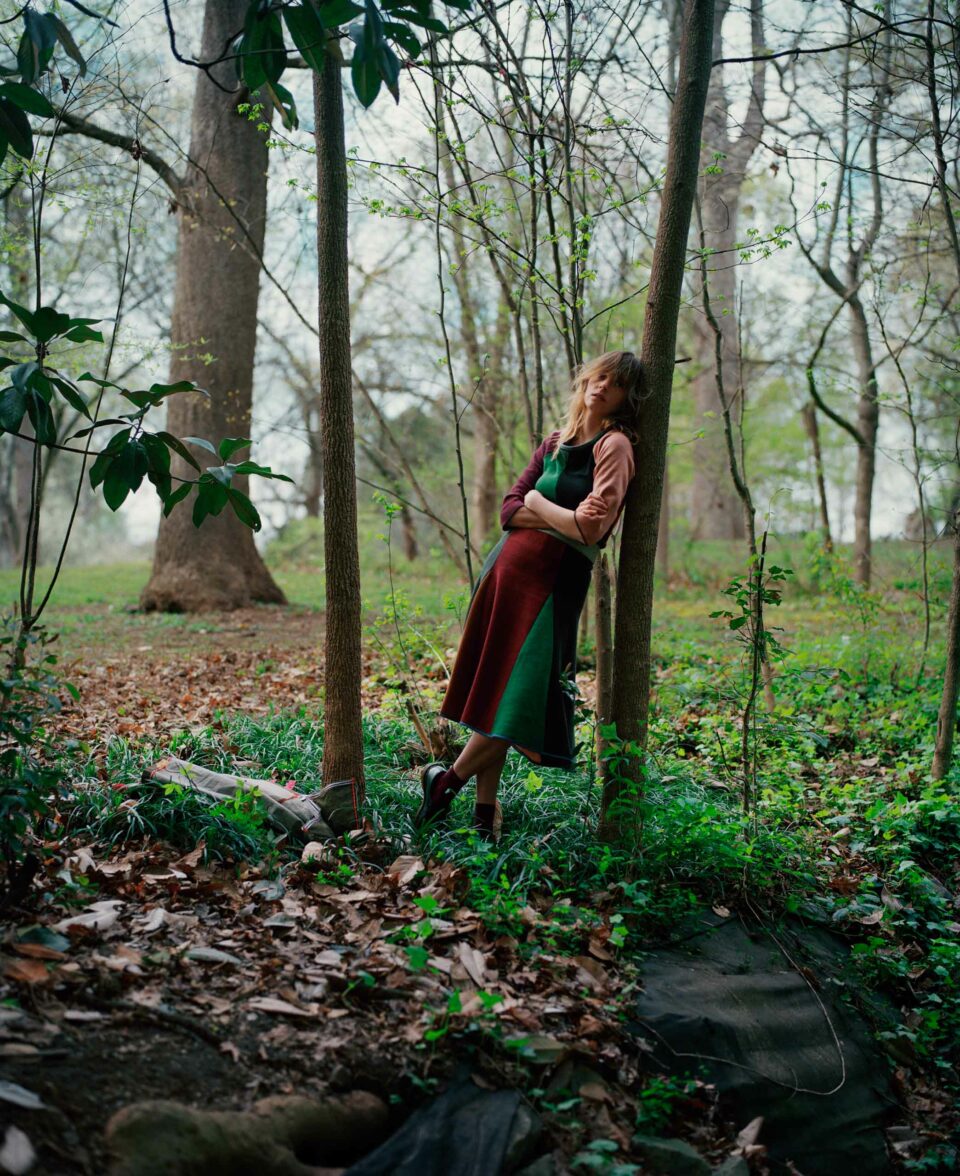
That’s where the album’s many meditations and mantras come in: “I want you, I love you, I promise, I'm sorry.” “I need you, I need you, I wanna be alone.” “If you’re OK, then I’m OK.” Hawke explains, “You have these things that repeat in the record, over and over. What I was trying to show through that is that we get stuck in these patterns and it's difficult to break out of them—but you have to try.”
Chaos Angel opens with the winsome childhood reflection “Black Ice” and its circular, self-soothing incantation: “Give up, be love, give up, be loved.” Hawke says that song and the title track—which, interestingly, is the final track on the LP—are the record’s most vulnerable. “I chose to bookend the album with those two songs because in some ways, they’re inverted—‘Chaos Angel’ should be the first song, and ‘Black Ice’ should be the last song, because ‘Black Ice’ is the conclusion that I came to. But I put it first because people listen to first songs more than they listen to last songs, and it’s more important to me that people get the peace and the optimism that I feel in that song. Then in ‘Chaos Angel,’ they get the pain. But I think people are shown lots of pain all the time right now, and being shown a path toward peace and acceptance is less common. It mattered to me more that people saw the solution before they saw the problem. And ‘Chaos Angel’ is sort of the problem. It’s really raw, because it’s confessional about my difficulty in relationships and the struggles that I’ve had.”
Aside from skirting any queries about Stranger Things spoilers, of course, Hawke’s only brief moments of reticence come when she’s questioned about specific, relationship-centric stories behind certain lyrics—like the aptly titled “Dark,” which begins with the gut-punching lyric “I don’t want to cry in your T-shirt ever again,” and which is described in a press release as being inspired by “a major anxiety episode following a soul-shattering breakup”; or the transactional-analytic therapy-speak recitation “Okay,” which Hawke wryly refers to as her codependency anthem. “I think that’s a question more for a shrink than for an article,” she chuckles.
But soon the floodgates crash open once more, as Hawke explains that while making Wildcat, “I was trying to stop the pendulum from swinging so wide. I think I was swinging between, ‘Oh my God, I need to ground myself—I need a home base, I need a place to live, I need a singular partner, I need to know who I am!’ And then I would get myself grounded and feel so stuck and suffocated that I couldn’t breathe and I needed to escape. So then I would escape and be free and there’d be this moment of relief. But then I’d feel chaotic again. I was swinging on this pendulum between suffocation and chaos, and I was really looking to find more equilibrium within myself, and more patience.
“By the time I was recording the album, I was already on my honesty train, and since then, I’ve been catching up with the honesty train and really starting to see the positive ramifications of that in my life.”
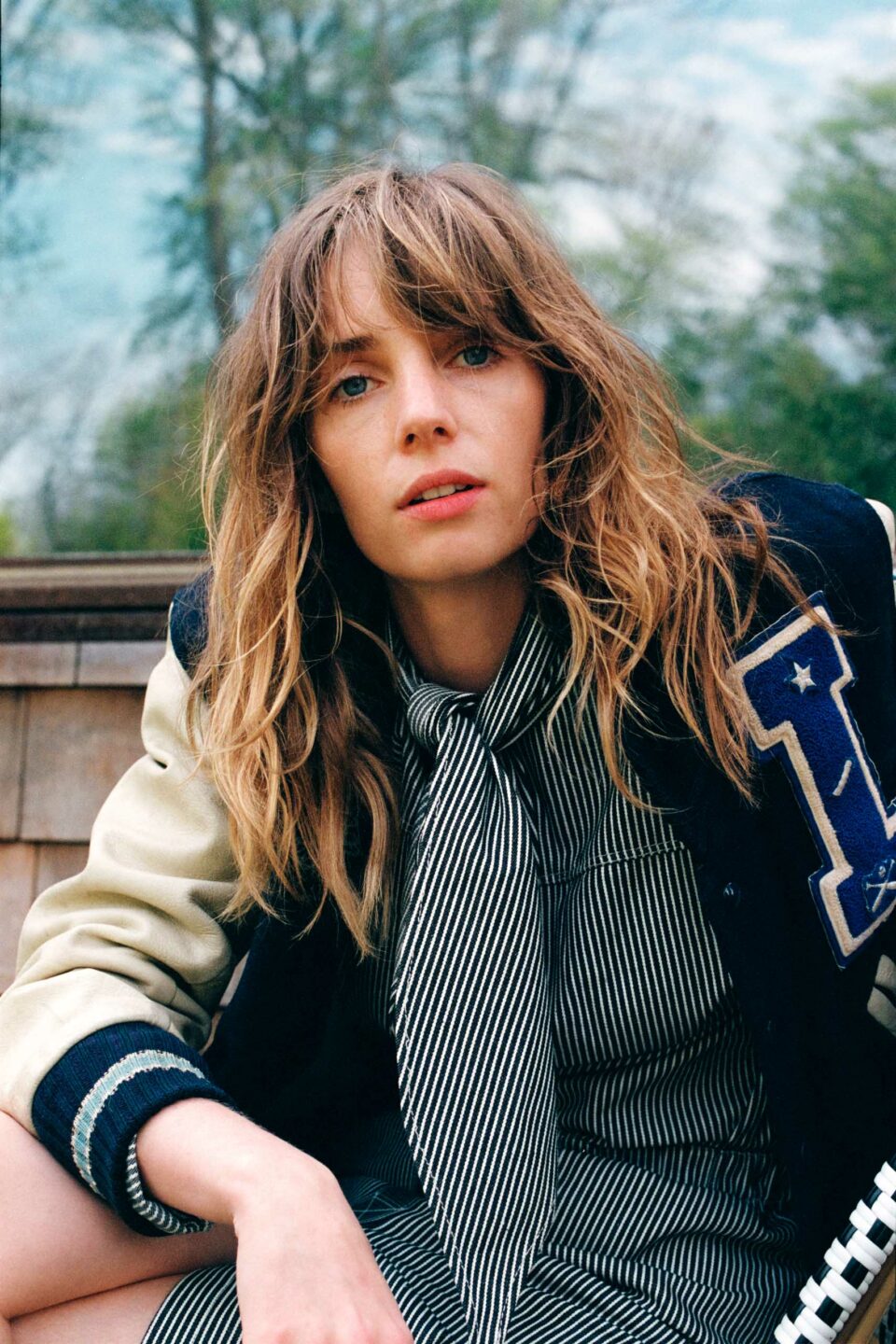
“So I think that was what I was looking to do: take the pendulum and narrow its swing. And I was really on my way by the time I made this record,” she continues, noticeably brightening. “I was communicating differently. Really, the big key for me was just no more lying—not even white lying. I was never a compulsive liar or anything like that, but I was trying to control too much of my life and control the way people thought about me in relationships—getting into relationships and in the beginning being like, ‘Yeah, I’m totally, exactly the person that you want me to be!’ I could sustain that for a while, but then I’d crack and wouldn’t be able to keep it up. So I started being really honest about what my expectations for myself were and who I was, and that started to change everything. Because it’s not the other person that’s suffocating you. It’s the version of yourself that you created, that you think that other person wants, that’s suffocating you. And the only way to find out if that person really likes who you are is to start being who you are. By the time I was recording the album, I was already on my honesty train, and since then, I’ve been catching up with the honesty train and really starting to see the positive ramifications of that in my life.”
And so, with a remarkable body of work both on record and onscreen, Hawke has little to hide or prove anymore. “I don’t feel very fixated on that at the moment. I’m feeling very excited about my life. I think we always have these different fantasies about different versions of our life, and I’ve got a rich fantasy life, but I love my life and I love my job, and I’m not pessimistic about all the chapters I have ahead of me that will look different,” she says. “I’m in a very optimistic mood.” FL
